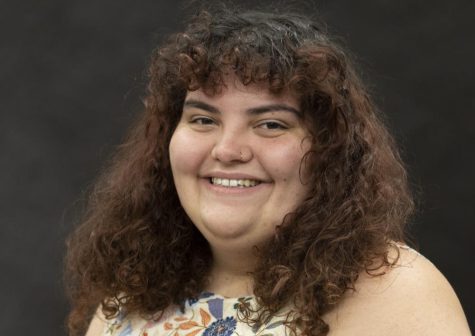1619 Exhibit, Race Card Project kick off ‘400th’
September 3, 2019
Two events were held to kick off a series of events with the purpose of looking in depth at race in the past, present and future in American society.
The event falls on the 400th anniversary of the first Africans being brought the what is now the U.S.
The first event of the day was held in Booth Library to show the “1619 Exhibit” and introduce The Race Card Project.
The purpose of The Race Card Project was to allow those in attendance to write down in six words their thoughts, experiences or observations about race.
Some statements written for the board included:
- “No such thing as (insert race) enough”
- “The only race is human race”
- “It’s not my story to tell”
- “We’re more alike than we’re different”
- “Nature didn’t make race—we did”
The event also included speeches from Eastern President David Glassman, Catherine Polydore, associate professor of college student affairs, and David Smith, a professor of history.
Smith had the idea to do something on campus related to the 400th anniversary of the first Africans being brought to the U.S. and was a part of the committee that brought the events together.
“This is a public institution, and the 400th anniversary is a pretty significant time to step back and consider issues about race and racism, and that 400-year legacy, not just thinking of it as a historical event 400 years ago, but 400 years and all that has continued since then to the present and will continue to the future,” Smith said. “It gives us the opportunity to think and reflect and learn about the issues of race and racism in our own society.”
Glassman said diversity and inclusion are important parts of a college campus.
“The university wants to be a place where inclusion exists and free speech happens,” Glassman said. “A university campus is one that allows such dialogue to take place respectfully and to hear all sides.”
Glassman said he thinks the events scheduled for the 400th Exhibit will be beneficial to the campus.
“To have these events in which people can listen to and learn about the situation and reality of the past helps us be able to analyze and make decisions relative to the future for areas of inclusions and diversity,” Glassman said.
Smith said college should be a setting where people are thinking about how they understand society.
“It’s a time to confront what can be difficult issues,” Smith said.
Glassman said the value of the events will be based on the number of people who attend, and he said everyone should attend the events when possible.
“My interest in this is to encourage as many people as possible to come out and see the various events and be a part of this project,” Glassman said. “I believe this is important and to have it on a university is the right place to have these difficult discussions and dialogues. I encourage everyone to attend.”
The next three events in the series will take place on Sept. 10.
“Radical Forgiveness Participatory Exhibit by The Justice Fleet” will be at 1 p.m. to 4 p.m. in the Doudna Concourse.
“Radical Imagination & Radical Forgiveness: Workshop on Intersectional Justice” will be hosted in the Tarble Arts Center from 4 p.m. to 5 p.m.
A keynote speech from Amber Johnson called “Radical Forgiveness and Radical Imagination” will be in the Doudna Theatre at 7 p.m.
Corryn Brock can be reached at 581-2812 or cebrock@eiu.edu.




































































